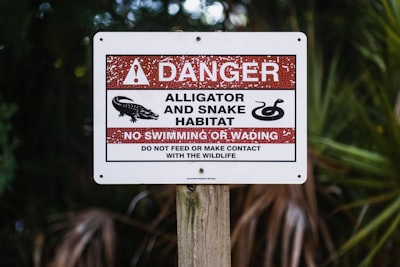Why Are Activists Opposing 'Alligator Alcatraz' in the Everglades?
Florida’s Everglades has seen its fair share of environmental debates, but the recent protest against the so-called ‘Alligator Alcatraz’ has spotlighted urgent questions about wildlife sanctuaries, animal rights, and land development. Protesters lining the highway through the Everglades have raised national attention—and curiosity. Here’s what you need to know about the controversy and how it fits into bigger conservation issues.
What is 'Alligator Alcatraz'?
‘Alligator Alcatraz’ is a proposed wildlife facility intended to house, display, or potentially rehabilitate alligators in a controlled environment. The name, echoing the infamous prison island, has drawn criticism from activists who argue that confining these animals contradicts the principles of wildlife preservation.
Keywords: Everglades protest, Alligator Alcatraz, wildlife sanctuary controversy, animal rights in Florida, Everglades conservation, animal captivity debate
The Debate: Wildlife Rehabilitation vs. Animal Captivity
At the heart of the argument lies a crucial question: Should wildlife sanctuaries prioritize rehabilitation and eventual release, or can permanent captivity be justified?
Supporters claim:
- Sanctuaries can protect injured or orphaned alligators from threats in the wild.
- Facilities serve educational purposes, teaching the public about alligators and the Everglades ecosystem.
- Some areas are simply too dangerous for vulnerable animals to thrive on their own.
Opponents argue:
- Captivity can cause psychological and physical harm to alligators.
- The Everglades ecosystem depends on wild, free-roaming animals—removing them undermines broader conservation goals.
- The name ‘Alcatraz’ suggests imprisonment, not protection.
The Everglades at a Crossroads: Balancing Tourism, Conservation, and Development
Increasing tourism and land development have made the Everglades a battleground for conservation efforts. Questions surrounding ‘Alligator Alcatraz’ mirror larger concerns:
- How can Florida maintain its reputation as a wildlife haven while supporting tourism?
- What are the ethical boundaries of wildlife tourism attractions?
- How are indigenous stakeholders, like the Miccosukee and Seminole tribes, impacted by such projects?
What Are the Future Trends in Wildlife Sanctuary Regulations?
With protests gaining visibility, Florida may see more scrutiny of its wildlife facility regulations. Nationwide, there’s a push for:
- Transparent standards: Clearer guidelines for animal welfare in sanctuaries.
- Third-party oversight: Regular inspections and certifications for wildlife attractions.
- Community involvement: Giving a voice to local residents and indigenous groups in environmental decisions.
Conclusion: Why This Matters for Conservation, Tourism, and Florida’s Reputation
The ‘Alligator Alcatraz’ protest is more than a headline—it’s a flashpoint in ongoing debates about ethical wildlife care, ecosystem management, and the balance between development and preservation. As these debates evolve, the choices made in the Everglades will echo across Florida and the country.
FAQ: 'Alligator Alcatraz' Protests and Wildlife Sanctuary Trends
- What is a wildlife sanctuary?
A facility designed to protect and care for wild animals, sometimes with the aim of rehabilitating and releasing them. - Why are people protesting 'Alligator Alcatraz'?
Critics say it symbolizes captivity, not conservation, and could harm the ecosystem. - What does this mean for Florida's tourism industry?
Ethical debates could impact tourism marketing and the future of wildlife attractions in the state.
For deeper dives on wildlife rehabilitation and eco-tourism ethics, check out resources from the Florida Fish and Wildlife Conservation Commission and national animal welfare groups.

Comments
No comments yet. Be the first to comment!